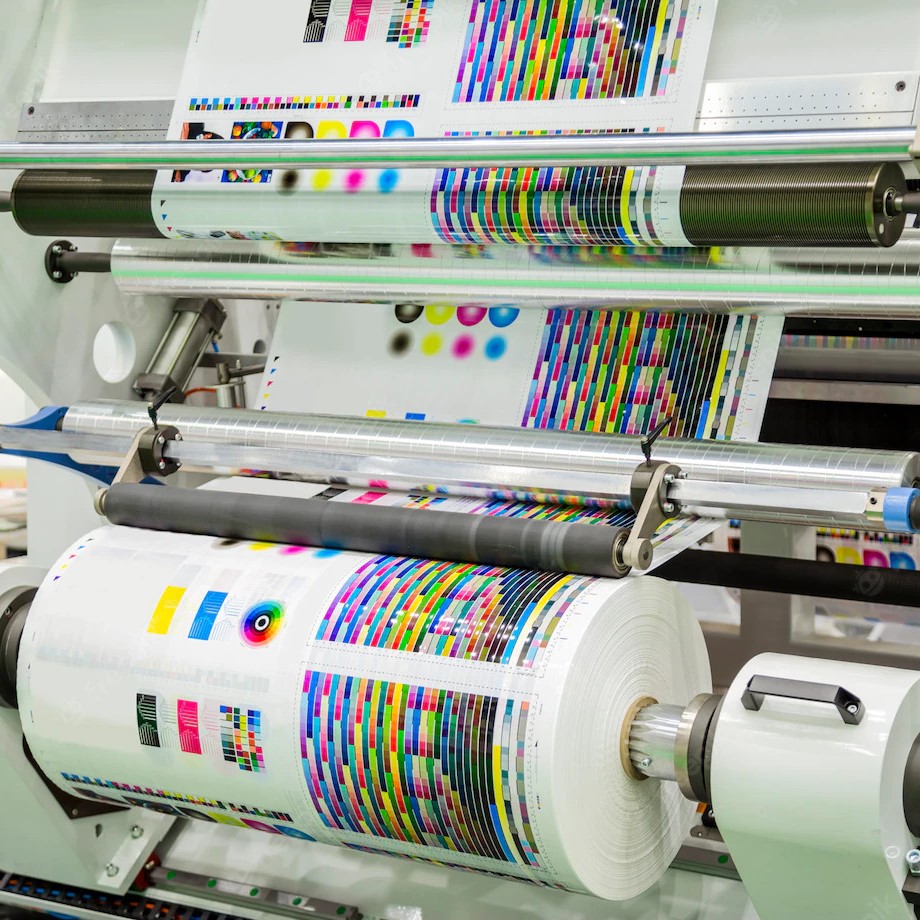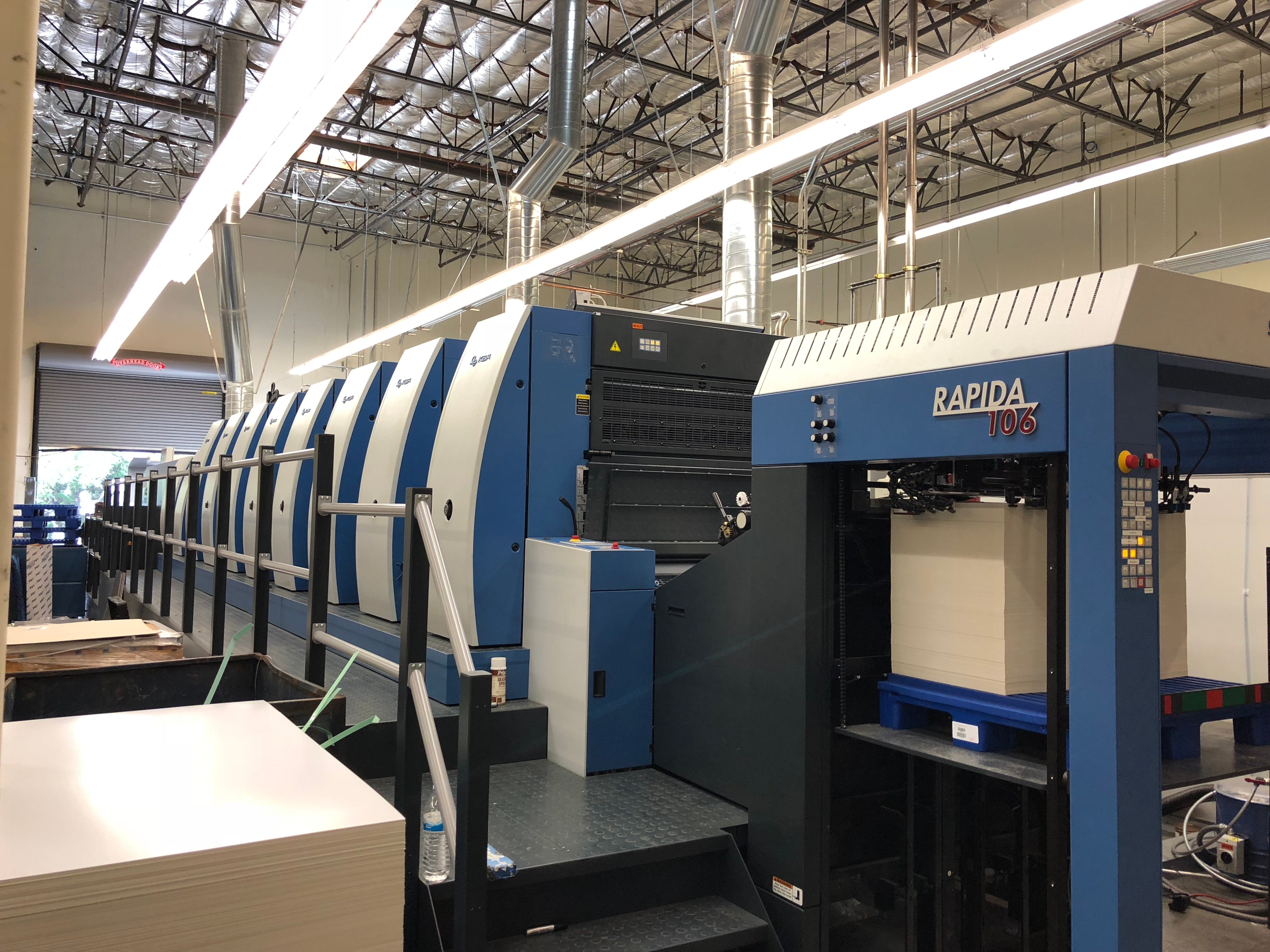The Perks of Using litho printing for Business Collateral
The Perks of Using litho printing for Business Collateral
Blog Article
A Comprehensive Guide to Comprehending Litho Printing Methods
The globe of litho printing, a strategy originating from the late 18th century, is a remarkable blend of background, art, development and scientific research. This comprehensive overview will certainly decipher the intricacies of this printing technique, from the make-up of litho inks to the difficulties encountered in contemporary applications. As we venture into the intricacies of lithography, the relevance of automation and sustainability in guaranteeing its future significance ends up being significantly clear. Remain with us as we trip into the exciting realm of litho printing.
The Historical Development of Litho Printing
The historical trajectory of litho printing, a critical development in the realm of communication, is a captivating tale of human ingenuity. The process evolved with the advent of the rotary press, which significantly boosted efficiency. Each stage of litho printing's advancement showcases humanity's relentless pursuit of efficiency and top quality in aesthetic interaction.
Decoding the Science Behind Litho Printing Inks
Progressing in the exploration of litho printing methods, the focus now changes to the scientific research behind litho printing inks. The make-up of these inks, their drying procedure, and color mixing strategies develop the foundation of this complex art form. Recognizing these components is important to understanding the craft and attaining the desired print outcomes.
Composition of Litho Inks
In lithographic printing, the basic duty of litho inks can not be overemphasized. The composition of litho inks differs depending on its objective, but generally, they contain two major elements - pigments and vehicles. Pigments, the color-providing components, are finely ground particles put on hold in the lorry, a liquid that carries the pigment onto the printing surface. The vehicle is a complex blend of solvents, oils, and materials, which affect the ink's drying out time, adhesion, and gloss. In addition, various additives are existing to enhance specific buildings like flow, drying out, and resistance to ecological results. Each component plays a crucial part in the final print's top quality, making the precise formula of litho inks a detailed science.
Ink Drying Process
From the composition of litho inks, attention transforms to the remarkable process of ink drying. 2 main techniques are used in litho printing: oxidative drying out and absorption. Absorption, on the various other hand, includes the ink leaking into the paper fibers, which is a much faster procedure however can lead to less vivid shades.
Color Combining Methods
While the drying procedure plays a crucial function in litho printing, the science of shade blending techniques holds equivalent significance. This is a complex procedure that includes the careful mixing of primaries: cyan, magenta, and yellow, in varying proportions to attain a broad selection of colors. The addition of black ink, referred to as 'essential', aids in controling the strength and deepness of the shades. The science behind litho printing inks additionally thinks about the openness of the ink, which impacts just how colors overlay and mix. To attain an effective shade mix, print professionals need to additionally recognize the details of ink actions, color theory, and the physical residential properties of the substratum on which the ink is applied.
The Art and Design Components in Litho Printing
Litho printing breathes life right into art and layout through its one-of-a-kind elements. The process entails creating a picture on a lithographic limestone plate or steel plate with a smooth surface. The photo is then published onto a medium, typically paper, by transferring the ink from the plate. What sets litho printing apart is its capability to duplicate complex layouts with high fidelity, making the result nearly identical to the original art work. This is achieved with making use of various line methods such as hatching, stippling, and cross-hatching, which permit a variety of tonal results. Litho printing suits a range of colors, making it possible for artists to develop dynamic and dynamic prints. This mix of accuracy and convenience makes litho printing a recommended option for several musicians and developers.
Modern Applications of Litho Printing Methods
Litho printing techniques have discovered extensive use in the modern business market. Its impact and value continue to expand with the advent of new advancements and modern technologies in the field. This area will certainly explore these contemporary applications and the transformative duty they play in the printing sector.
Business Litho Printing Uses
In today's electronic age, one may question the importance of standard printing techniques. Litho printing remains a crucial component go of the industrial field. High-volume printing tasks, such as the manufacturing of publications, papers, and product packaging, count on litho printing for its capability to deliver exceptional photo high quality and expense performance. The process, which includes transferring a tattooed image from a plate onto a rubber covering and afterwards to Get More Info the printing surface, supplies unequaled consistency. This makes it optimal for tasks requiring a huge print run. Litho printing also gives a broad color spectrum, above that of digital printing. This makes it the go-to selection for jobs that demand lively, premium color recreation.
Technologies in Litho Printing
Pressing the limits of standard strategies, contemporary innovations have actually sustained a host of innovations in litho printing. One famous development is electronic litho printing, which incorporates the merits of electronic technology with litho's top quality output. These developments underscore the enduring importance of litho printing in the contemporary globe.
Exploring the Process of Litho Printing: Detailed

Challenges and Solutions in Contemporary Litho Printing

Regardless of the accuracy and custom that litho printing proudly promotes, it is not without its collection of contemporary obstacles. our website Digital litho printing enables for affordable short runs and simple modification, attending to the concern of variable data. Hence, while there are challenges, the litho printing industry is proactively adjusting to satisfy them head-on, ensuring its relevance in the future.
Verdict
Finally, litho printing, with its abundant background and scientific intricacies, holds a considerable area in the print industry. As the guide discloses, it's a synthesis of art and modern technology, with modern-day improvements ensuring its significance. Nonetheless, the sector faces difficulties that call for innovative services, with a focus on automation and sustainability. The future of litho printing rests on its ability to adapt to these changing needs, attesting its enduring value in an evolving market.

Report this page